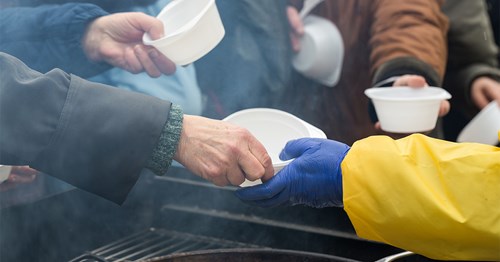Blue Cross Blue Shield Association (BCBSA) announced this week it has partnered with Feeding America® and its network of 200 food banks to educate Americans about the safety and the effectiveness of the COVID-19 vaccine.

BCBSA, a national federation of 35 independent, community-based and locally operated Blue Cross and Blue Shield companies, said that it will provide Feeding America and food banks throughout the country with English and Spanish educational materials, such as social media posts, posters, and question-and-answer documents that draw on information from trusted sources from the Centers for Disease Control and Prevention and BCBSA clinical events.
The goal, according to the announcement, is to help dispel myths that may prevent people from getting the vaccine. Local food banks will be able to leverage the materials on their own digital channels and at their brick-and-mortar food pantry locations.
BCBSA and Feeding America will also work together to create web-based public health modules and additional materials over the next 12 months, covering critical health topics such as COVID-19, vaccinations, and the importance of health equity to help enhance health education within the communities that Feeding America network food banks serve.
“To stop the pandemic, we must work together to help people get vaccinated and support our communities–especially those that are most vulnerable,” Kim Keck, president and CEO of BCBSA, said in the announcement. “With its nationwide network of community food banks, Feeding America is a tireless advocate for millions of Americans. We are pleased to work with them to build confidence in vaccines and to start to regain normalcy in our lives.”
Casey Marsh, chief development officer at Feeding America, said in the announcement the organization is in a unique position to help identify and address systemic barriers to ending food insecurity in the United States. “Partnerships with organizations like BCBSA help us work with member food banks to invest in underserved communities in many ways, including investments in health equity,” Marsh said.
